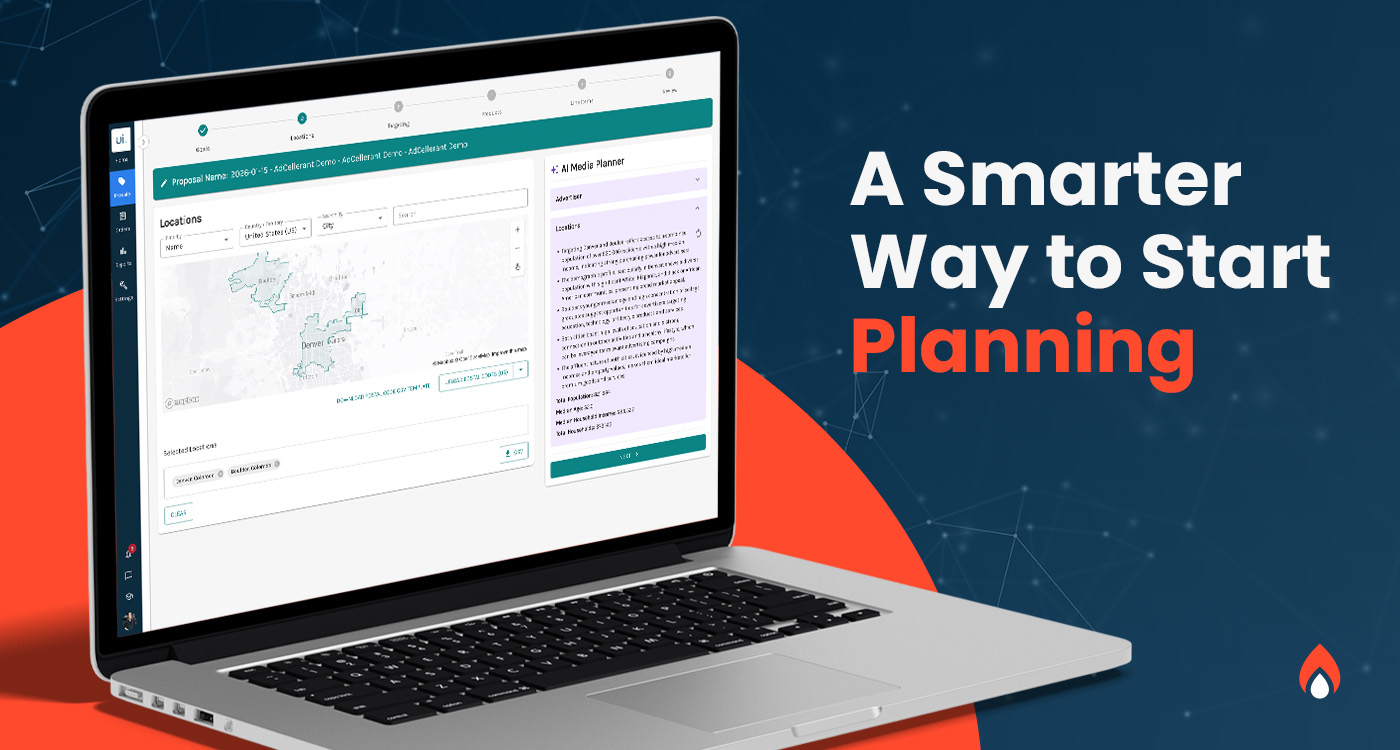Headlines have sparked a frenzy with Google’s announcement about the future of third-party cookies, which have sent shockwaves throughout the digital landscape. As companies like The Trade Desk (TTD) navigate through uncharted territory, uncertainty lingers over the fate of targeted advertising and the advertising technology industry.
The Trade Desk has expressed its commitment to developing new technologies and solutions that enable marketers to reach their target audiences—how effective those solutions will be in the long run is yet to be seen.
Buckle up as we ride out this journey into the cookies, technology, and the future of digital marketing.
Google’s Strategic Shift: Prioritizing Its Properties
Digital advertising is an ever-evolving business. It may have come as a shock to some people, however. We see ourselves as “Switzerland” when these digital giants start throwing rocks at each other.
This blog post by The Trade Desk states, “Google is making a trade. With this announcement, Google is doubling down on its properties, such as Search and YouTube, and adding bricks to the walls around those properties. The trade-off is that Google no longer values serving ads on the rest of the internet as much — certainly, not as much as they once did.”
Unified ID 2.0: Empowering Consumers and Transforming Digital Advertising
Another critical note from TTD is that Unified ID 2.0 is designed with the consumer in the driver’s seat. The consumer’s information is not identifiable. The consumer controls how their data is shared. And the consumer gets a simple, clear explanation of the value exchange of relevant advertising in return for free content. Google’s strategic approach with Unified ID 2.0 revolves around establishing a transparent, secure, and efficient system for delivering ads and content. Unified ID 2.0 represents a transition from relying on third-party data to building consent-based, first-party consumer relationships. This shift will enable enhanced personalization, targeting, measurement, and security across various use cases, benefiting advertisers, publishers, and stakeholders.
Unified ID 2.0 has emerged as a transformative solution with immense potential to become the new standard currency of the open internet. Acting as a common currency, it effectively balances the value exchange between publishers, advertisers, and consumers, benefiting all parties involved. This innovative system will avoid the control of any company, including Apple and Google. Google aims to deliver increased value to consumers while fostering a streamlined ad delivery system.
Replacing Cookies with a New ID System: Building a Privacy-First Infrastructure
UID 2.0 surpasses cookie-based tracking, enhancing user privacy and transparency, and expanding application across digital channels. It presents an opportunity to overcome the limitations of cookies, enabling unified tracking in areas like Streaming TV, Mobile Apps, and more. These advancements benefit advertisers by improving tracking capabilities and prioritizing consumer privacy. Contextual targeting remains unaffected by privacy legislation as it operates without collecting user information.
The industry is building a new infrastructure to replace cookies with a different ID. This new system will enable granular, relevant targeting and measurement while ensuring existing systems remain intact. Privacy-first principles will guide this infrastructure, providing users with control over their data and empowering marketers with the insights they need for effective campaigns.
The result should be a more personalized user experience without compromising their privacy or security. We are looking forward to seeing the development of this new infrastructure and the positive impact it will have on the industry. With the proper protections and safeguards in place, it will be a win-win for both consumers and advertisers.
Understanding Google’s Change and the Trade Desk: Key Details and Solutions for Advertisers
Below are some other key details about Google’s change and The Trade Desk to understand and use when speaking with any advertiser with concerns.
- The Trade Desk’s (TTD) solution is a “Unified” ID.Many power players are involved in the new solution, including a non-biased party, Prebid.org, to ensure the solution operates as an open-source platform. According to Prebid’s charter, “its purpose is to operate infrastructure on behalf of the industry in cases where trust and transparency are required, and a for-profit entity just isn’t an appropriate choice.”
- Contextual targeting offers an alternative to cookie-based targeting,aligning with emerging trends and policy changes. It enables advertisers to diversify methodologies and explore new marketing strategies.
- Contextual and behavioral advertising lies in targeting approaches.While behavioral targeting relies on cookies to track users’ past actions, contextual targeting focuses on the web page’s content where the advertisement is displayed.
- Leveraging Page Context AI, users can input relevant in-context phrases to receive potential URLs for ad placement. By incorporating both in-context and out-of-context terms, our patent-pending algorithm facilitates the creation of a custom contextual strategy, ensuring optimal ad placements based on a publisher or site’s content.
- Multiple companies are making their solutions and IDs.However, the best platform will work with any ID solutions.
Embracing the Cookieless Future: AdCellerant’s Solutions for Partner’s Success
These new identity solutions can exist in parallel and be leveraged differently for specific use cases. Platforms are already developing the infrastructure to accept, process, and execute these emerging identifiers. Some will keep their solutions closed and restricted to their platforms. Others are working together to create open-source solutions that can translate more easily across existing infrastructures. For this reason, we continue to diversify our technology partnerships to ensure that no matter what happens, we will be ready to help our partners navigate this changing space with a minimal negative impact on their business. We will also help our partners find the right balance between security, privacy, and convenience necessary to ensure a positive user experience.
AdCellerant is exploring solutions to help clients transition to a cookieless future, such as contextual targeting, first-party data, and non-cookie-based authentication. We are committed to assisting partners in navigating the digital landscape and are excited about the possibilities and opportunities that could arise.
Navigating the Future of Data and Privacy
There’s no need to be afraid of where the future of data and privacy is going. The best thing is to remain informed, and our team of experts has created a whitepaper to help you stay up-to-date. We’ve created a free whitepaper so you can unlock the content you need to understand the cookieless future and make future-focused decisions for your business.
*This blog was updated on June 28, 2023.




